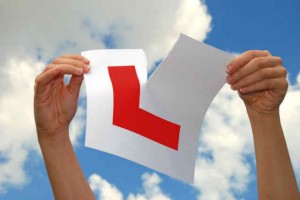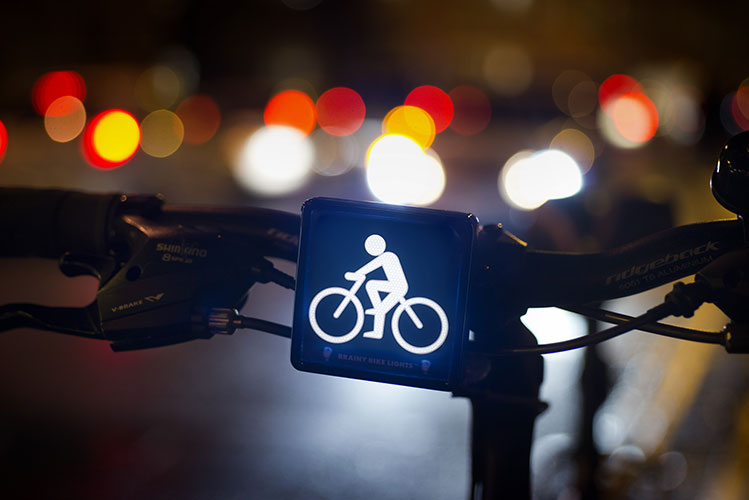Some ‘interesting’ design features highlighted in this article on the Guardian being used to nudge behaviour. It raises some interesting questions about public space and perceptions of individuals. I strongly agree with one of the comments on the article which says ‘deal with the cause not the symptom’.
Today I Cycled
I enjoy cycling but don’t jump on my bike as often as I should do. Today, however, was one of those rare occasions when my bike seemed like the perfect mode of transport. I was meeting an ex-colleague for a coffee in Canonmills – about 1.5 miles from home.
So what was it about today that made me pull my helmet on and drag my bike up from the basement?
At one level, I knew I needed some exercise! Working from home means my activity levels have plummeted. Additionally, my indoor hockey session was cancelled this week, so I felt I should replace it with some other form exercise. I quickly reasoned that I could tick two things off at one – I could get where I need to get AND gain some exercise, all for free. It was a win-win all round. Still, for me that’s not enough of a motivation on its own, otherwise I’d be cycling or running everywhere.
Upon reflection, I think location was probably the main driver for my decision to cycle.
Speeding Fines on the Increase
The power of money is once again being tested as a method to change our behaviour – this time it is through fines to attempt to stop drivers from speeding. Under proposed changes drivers could be fined £10,000 if caught speeding on a motorway. To me that amount sounds huge and would surely act as a deterrent. Having said that, I am left wondering why the current level of £2,500 (still a significant amount in itself) is not high enough.
Paid to Cycle to Work
Would 25 cents (euros) per kilometre be enough to inspire you to start cycling to work? In France there is a six-month experiment underway involving 20 companies and institutions who employ a total of 10,000 people. 25 cents doesn’t sound much but I just did a quick calculation for my journey to my previous place of work (i.e. not to my desk in my study) and it would certainly add up to an appealing figure after a year of cycling. I look forward to seeing the results.
Reducing problem gambling
I just came across this article on tackling problem gambling in a newsletter I receive from the Canada Foundation for Innovation. Researchers have been trying to encourage responsible gambling – i.e. an individual setting limits on how much money they will gamble in one session and adhering to it. They’ve found that giving the gamblers simple information to debunk false beliefs about the likelihood of winning, can have positive impacts.
“We explain why persistence at a slot machine does not pay off,” says Wohl. “The odds are, you will lose your money.”
While providing this information in the format of an animated video does appear to influence gambling behaviours, it is reported that its impact wanes after 30 days. I’m interested to see how they might extend this influence for longer-term positive effects.
Decline in Young People Driving
At the end of last year I completed my masters degree – a Masters of Research in Urban Studies. My dissertation proved to be a great opportunity to investigate a topic which had really caught my interest – the decline in young people opting to learn to drive. I wanted to know what was causing this trend from an individual’s perspective.

5 Minutes Early: A Self-Analysis
So as I have previously explained, my blog is called ‘5 Minutes Early’ because when I decided to start blogging about human behaviour it prompted me to reflect on my own behaviours. One of the things I noticed was that I always get to the bus stop 5 minutes early.
At the most basic level, I think it is just a personal preference that I like to be early. Actually, it is more that I don’t like to be late. This has always been part of my character for which I must ‘thank’ my parents. Obviously being late for the bus isn’t a desirable thing because that would usually mean missing the bus, but why do I arrive 5 minutes early and not just 1 minute early (noting that timetables exist and bus tracker apps are very good)? I guess I like to know that my walk to the bus stop will be stress-free. I like to give myself enough of a buffer to know that I don’t even need to glance at my watch to check that I’m on time. Furthermore, whilst we do have timetables and bus tracker apps, I’m not sure that I trust them to be 100% reliable. It is not often that buses are early, but it has happened to me and I guess that probably adds some wariness to my decision making.
Today I read a great article in the New York Times which showed ‘Peer Pressure‘ does not always have to be a negative concept. The article introduces a number of examples where some form of peer pressure has been harnessed to bring about positive behaviour change.
The article quotes Dean Karlan, a Yale economics professor who highlights two important components of human behaviour when people try to maximise their happiness:
One part is that our happiness isn’t just a function of what we eat, drink and consume: it’s also our image to others, and our reputation. The second way that people influence decisions is through their information networks. I get information from friends, and that information will affect the decisions I make.
So, if people think they are being observed they may alter their behaviour to fit a social norm, particularly when if they have seen other people who they trust or respect also participating in that behaviour.
The article gives some fantastic examples of using peer pressure from treating water to increasing the uptake of breast feeding, although it does not come without criticism. For some these types of initiatives exemplify too much social control. Additionally, there is the concern that there is a requirement for someone to define what is correct / good behaviour versus bad behaviour.
It has left me thinking about peer pressure and social norms when it comes to transport. If using public transport isn’t the norm, what could we do to make it become so? In part I think the answer starts with having strong, visible and relevant people who ‘set the example’ for others to follow. But then what?
Safer Cycling
Today I stumbled across an article on the Guardian which introduced me to Brainy Bike Lights. It’s an interesting story about a new type of bike light which has been developed based on behavioural insights. The concept recognised that much driving is done on auto-pilot and that the safety of cyclists might be improved by
cutting brain processing time and allowing drivers extra time to react.
Brainy Bike Lights does this by using a symbol of a cyclist rather than a traditional light, which allows faster identification of cyclists by drivers.

It is also thought that the use of the symbol subconsciously prompts drivers to see cyclist as a vulnerable person, resulting in more cautious driving.
Reading about these bike lights has made me think about the potential to be more creative when designing any information which is being used to try to change behaviours. What conscious and subconscious impacts are our messages having?